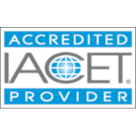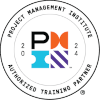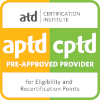Product Details
Topics Covered
- Mission, vision and values statements
- Codes of ethics
- Governance policies
- Financial fraud
- Board of directors
- Compensation
- Conflicts of interest
- Fundraising ethics
- Social media policies
- Disclosure and transparency
- Compliance and the IRS
- Compliance and the state
- Compliance and the community
- Compliance officer
- Record-keeping and the Sarbanes-Oxley Act
Key Features
- Mobile-friendly
- Audio-enabled
- Badge and credit-awarding
- Real-world case studies
- Fully accessible
- Games & Flashcards
- Expert-supported
- Video content
Course Preview
Course Description
Learning Outcomes
- Explain why nonprofit organizations are often held to higher ethical standards than for-profit corporations
- Identify the key ethical issues that nonprofits need to address
- Distinguish between mission, vision, and values statements
- Discuss the key elements of an organizational ethics code
- Articulate key ethical principles as they apply to nonprofit fundraising
- Identify the four different types of conflict-of-interest
- Name the steps in establishing a transparent executive compensation process
- Explain the three duties that nonprofit board members must follow
- Identify the key governance policies than nonprofits should adopt
- Explain the provisions of the Sarbanes-Oxley Act that apply to nonprofits
- Explain why nonprofit organizations should adopt a social media policy
- Name the major duties of a compliance officer
- Identify the major IRS requirements for 501 (c) (3) organizations
- List the major areas in which nonprofit organizations must comply with state laws
- Name the major areas in which nonprofit organizations may need to comply with local laws
- Explain the concept of "compliance with the community"
Notes
This course has an "Ask the Expert" feature, which submits your questions directly to an expert in the field you are studying. Questions are answered as quickly as possible and usually within 24 hours.
As an Accredited Provider, MindEdge offers for its learning events that comply with the Continuing Education and Training Standard.
Learners must achieve an average test score of at least 70% to meet the minimum successful completion requirement and qualify to receive credit. Learners will have three attempts at all graded assessments.
Project Management Institute, , the Registered Education Provider logo, Project Management Professional, , Project Management Body of Knowledge, , Agile Certified Practitioner, -, Risk Management Professional, -, the Talent Triangle, and the Talent Triangle logo are marks of the Project Management Institute, Inc.
Information in this course has been taken from A Guide to the Project Management Body of Knowledge, (® Guide) - Sixth Edition, Project Management Institute Inc., 2017.
The following list outlines the you will earn for completing this course, based on the certifications you have.



